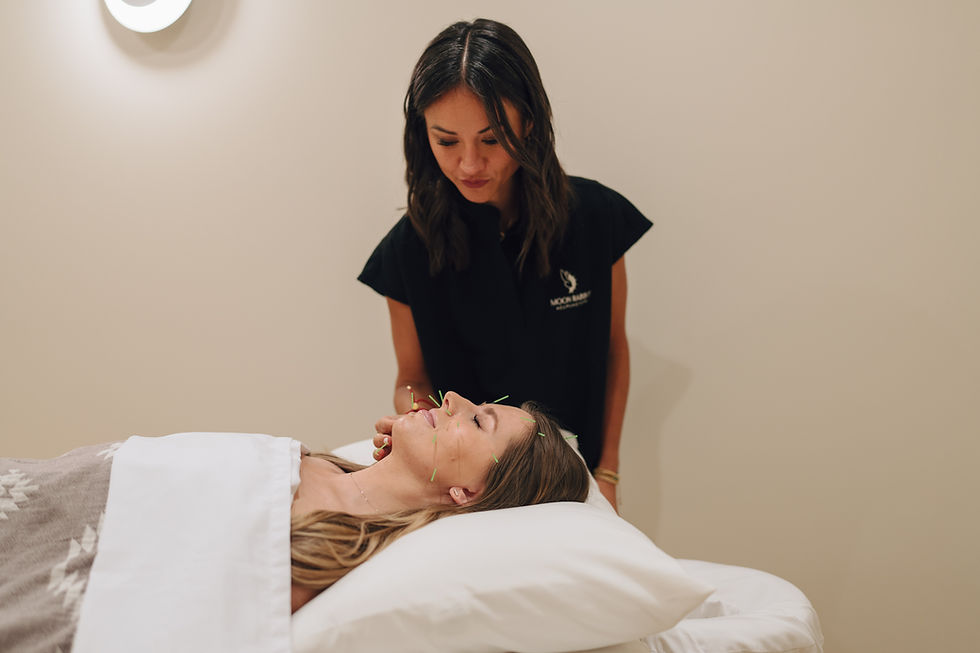- Nov 13, 2023
- 2 min read
Updated: Jul 30, 2025
Clinically reviewed by: Gudrun Wu Snyder, Doctor of Acupuncture, DAc, LAc, Dipl.Ac (NCCAOM), MSAc
ac • u • nap
[ak-yoo-nap]
The short nap you take during an acupuncture session in which you aren't actually awake or asleep, yet wake feeling completely refreshed.
Side effects = Waking up feeling an immense state of bliss.
Water. Food. Sleep. The three most essential things for - literally - staying alive. Sleep is personal — everyone seems to have a different approach/relationship with it. We all have a friend who’s bright eyed after 3 hours of deep sleep. But then there’s the person who wakes up sluggish after 10 hours in bed. It’s estimated that 50 to 70 million Americans chronically suffer from a sleep disorder.
Acupuncture and Chinese herbs balance the nervous system and activate neurotransmitters in the brain which greatly helps with sleep issues. Acupuncture (to address insomnia) boosts energy and increases certain hormones that prompt sleep. Depending on a person’s type of sleep disorder (trouble falling asleep vs. staying asleep), a traditional Chinese medicine (TCM) doctor will know where to focus treatment. Acupuncture is all about calming the heart/mind and relaxing the body to ensure that the heart/mind/body are in balance and harmony.
“One of the most common complaints clients have is insomnia,” says Gudrun Wu Snyder, Doctor of East Asian acupuncture and founder of Moon Rabbit Acupuncture. “There is an acupuncture point called An Mian, or deep sleep, which can do wonders for difficulty sleeping.”
In TCM, it’s believed that poor sleep can be caused by several things all having to do with qi. Qi is the flow of energy that travels through pathways in your body. By inserting needles into precise points along these channels, your energy flow will re-balance. Spleen qi deficiency, liver qi stagnation and heart or kidney disharmony are the most common concerns when it comes to sleep difficulty. According to TCM, each organ goes through a revitalization process every two hours. During this time the body is essentially repairing itself, however, this process is interrupted if a person is not able to properly rest.
Chinese herbs are often used as part of a TCM treatment plan. A study that examined Chinese herbs used for sleep issues concluded that some herbs have sedative qualities that act on various neurotransmitters such as gamma-aminobutyric acid (GABA) and serotonin receptors (5-HT1A) which affect sleep quality.
“My clients often land on acupuncture after they’ve tried to treat insomnia on their own or they’ll add acupuncture alongside treatment from their M.D. Sometimes a sleep solution is as simple as cutting out sugar, alcohol or blue light close to bedtime. Even the timing of exercise can effect your sleep,” according to Gudrun.
“Sleep is essential for our wellbeing and difficulties with getting a good night’s rest should not be ignored.”
Note: Serious medical conditions (i.e. restless leg syndrome, sleep apnea and others) should be ruled out by consulting with your M.D..

.jpg)












